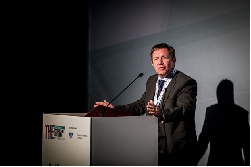May 2018 Research, Science and sKnowledge
Read the articles selected in May 2018
High school students say internet is bad for education
By Niels Ebdrup
Source: http://www.oecd.org/
From a comprehensive survey carried out among Danish high schools, it has turned out that half of the students would do without Internet impeding them to concentrate during classes. However, according to experts Internet remains a good educational tool and a responsible and self-controlled use is the best approach.
Read more:
http://sciencenordic.com/high-school-students-say-internet-bad-education
Macron’s vision of universities networks moves forward
By Jan Petter Myklebust and Brendan O’Malley
Source: University World News, 5 May
The development of European universities networks is the opportunity of a deep modernization in the educational sector, starting from the harmonization of European diplomas and the delivery of new models of educational programmes based on European curricula, flexible and student-centered.
Read more:
http://www.universityworldnews.com/article.php?story=20180505051434124
Artificial Intelligence for Europe
Source: European Commission
AI is the technology of our time and the way we use it shapes the world where we live. The EU sustainable approach aims at making it as a tool for good and for all, while the General Data Protection Regulation explains the basis of European values which provides the meaning we want.
Read more:
file:///C:/Users/Roberta%20Capo/Downloads/CommunicationArtificialIntelligence.pdf
Artificial intelligence: EUA calls for openness, multidisciplinarity and ethical standards
Source: http://www.eua.be
Artificial Intelligence needs not only data but also creative experts and innovators to be trained through a research-based, multidisciplinary and student-centered education. Appropriate regulatory and funding frameworks should ensure to develop innovative learning environments and an open approach to text and data mining.
Read more:
Shaping European universities of the future: the Guild’s recommendations for the European Universities initiative
Source: http://www.the-guild.eu, 23 March
A strategical collaboration between the universities of our continent to be successful requires the long-term commitment of universities, governments, and the EU institutions, combining old and new tools of funding and aiming at strengthening the research excellence and impact.
Read more:
http://www.the-guild.eu/news/2018/Position-paper-European-university-networks.html
Citizenship education at School in Europe 2017
Source: European Commission
In modern democratic societies, expectations of education in promoting fundamental values are high. This report provides information about national policies which support students in the development of skills to act in a responsible, interactive and democratic manner, and to think critically.
Read more:
Efficiency, Effectiveness and Value for Money: insights from the UK and other countries
Source: http://www.eua.be
This report based on UK institutions’ experience intends to tackle the challenges facing higher education with regard to long-term sustainability, focusing the efficiency and effectiveness objectives on the idea of value for money, to ensure the best use of all funding sources responsibly to all the stakeholders.
Read more:
Over 300 million people suffer from depression worldwide. Can education help?
By Simon Normandeau
Source: http://www.oecd.org/, 20 April

Education systems can play a role in depression, raising students’ cognitive skills and self-esteem. With a higher level of educational qualifications decreases the likelihood to report depression, thanks to improved job prospects.
Read more:
http://oecdeducationtoday.blogspot.it/2018/04/education-depression-mental-illness.html
Research Excellence Summit: east-west gap “worsened by EU easy money”
By David Matthews
Source: Times Higher Education, 25 April

The rain of structural funds distributed from the European Union to eastern poor regions and used to help boost research have not incentivized their competitivity for funding at the highest level. This gap between western and eastern Europe is no longer sustainable and is a crucial issue for Europe’s future.
Read more:

